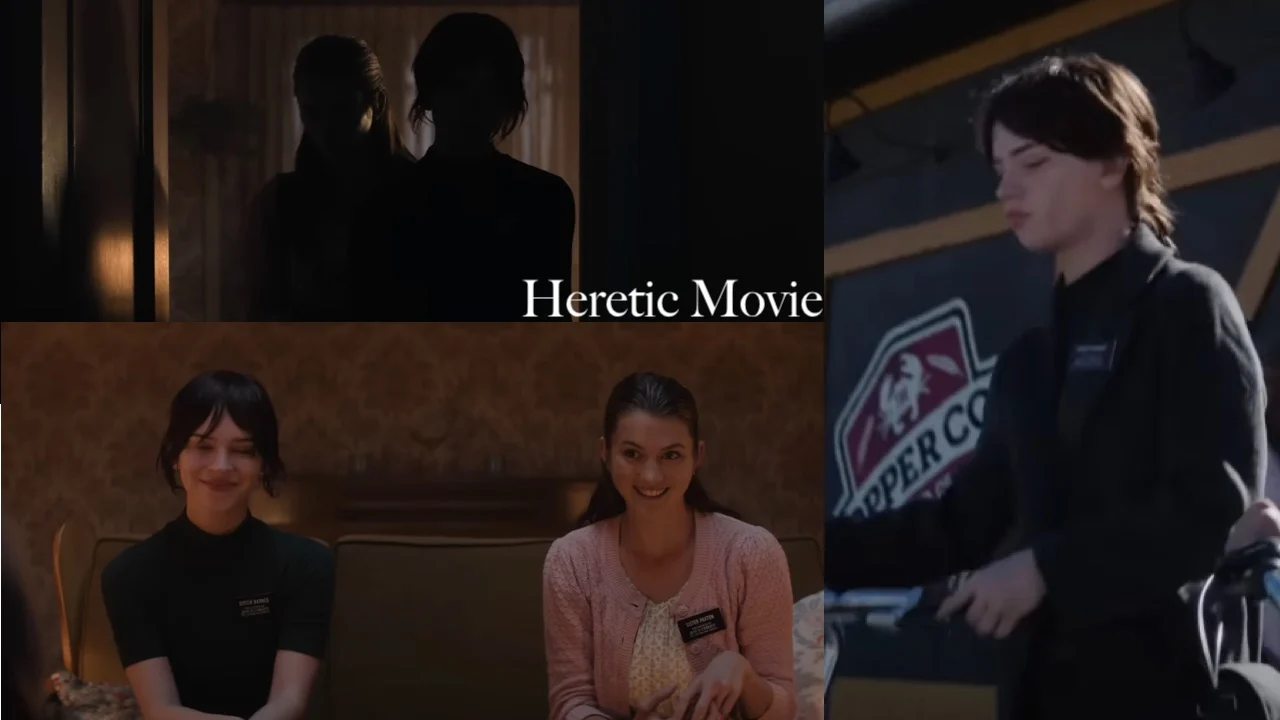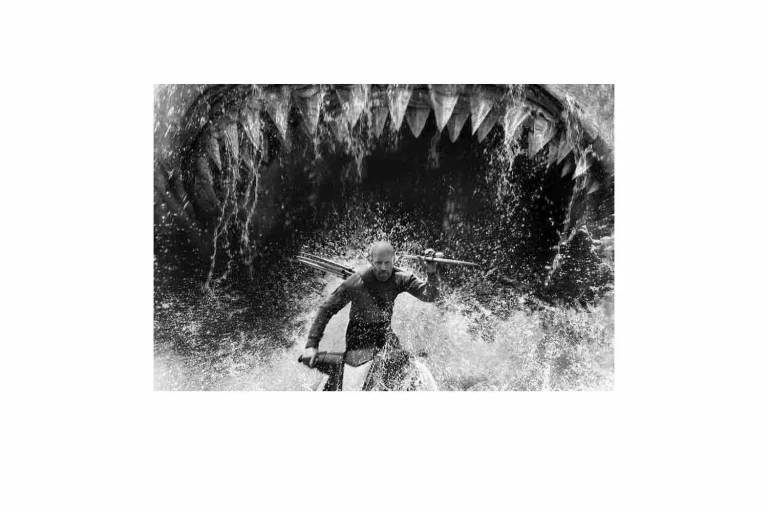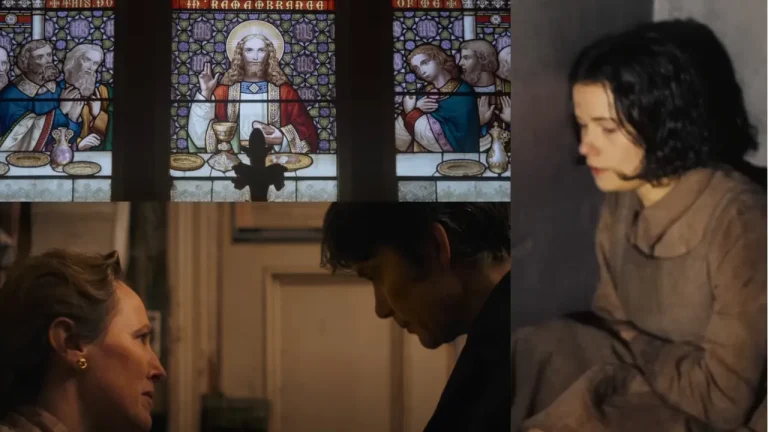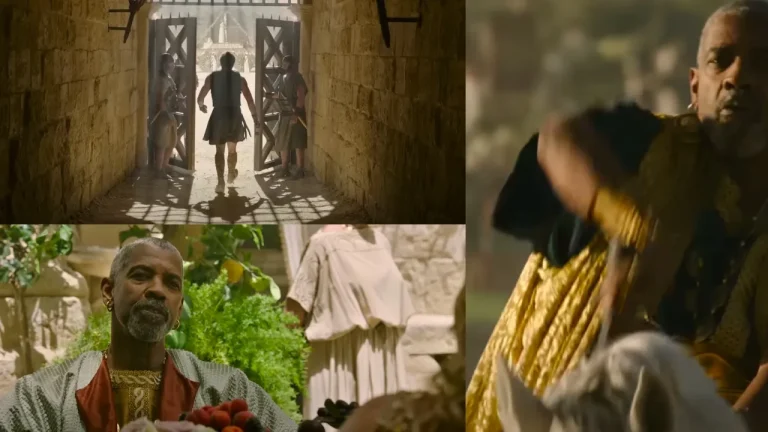
Heretic movie brings a chilling new perspective to religious horror, starring Hugh Grant in a role that defies his typical charming persona. Released on November 8, 2024, this A24 production masterfully blends psychological tension with questions of faith, creating a haunting examination of belief and doubt. Through precise direction and powerful performances, this horror film challenges viewers to question their own convictions while delivering sustained psychological terror.
What Makes Heretic Film Stand Out in Religious Horror?
Breaking away from conventional horror tropes, Heretic film presents a sophisticated take on faith-based terror. Directors Scott Beck and Bryan Woods craft an intense psychological thriller that centers on two young missionaries who encounter the enigmatic Mr. Reed, portrayed with menacing brilliance by Hugh Grant. The film maintains its grip through intellectual discourse rather than relying on jump scares or graphic violence.
Watch Heretic movie on Movierulz3.pro for an unforgettable horror experience that challenges both mind and spirit.
Cast and Characters: Who Brings This Dark Tale to Life?
| Actor | Character | Role Description |
|---|---|---|
| Hugh Grant | Mr. Reed | Antagonist |
| Supporting Cast | Young Missionaries | Protagonists |
How Does Hugh Grant Redefine His Career in Heretic?
Hugh Grant delivers a career-defining performance as Mr. Reed, shedding his romantic comedy persona for something far more sinister. His portrayal brings an intellectual depth to the antagonist role, creating a character whose psychological manipulation proves more frightening than any supernatural threat. Grant commands every scene with subtle malevolence, using his characteristic wit to create unsettling moments of dark humor that make the horror more pronounced.
Technical Brilliance: Why Does the Direction Stand Out?
Beck and Woods demonstrate their directorial prowess through precise framing and atmospheric tension. The 2.39:1 aspect ratio creates a cinematic scope that enhances the claustrophobic nature of the story, while the carefully crafted sound design amplifies the psychological horror elements. Each technical choice serves the narrative, from the desaturated color palette to the methodical camera movements that mirror the protagonists growing sense of unease.
Plot Analysis: How Does Faith Become a Weapon?
The narrative follows two missionaries whose routine door-to-door ministry transforms into a nightmarish ordeal. When they encounter Mr. Reed, what begins as a simple conversation evolves into a dangerous game of psychological warfare, testing not only their survival instincts but the very foundations of their beliefs. The screenplay expertly weaves theological debate with mounting tension, creating a unique horror experience that engages both intellectually and emotionally.
Narrative Structure: Why Does the Pacing Work?
The films 111-minute runtime maintains perfect pacing, gradually building tension through three distinct acts. The opening establishes the missionaries routine work, creating a false sense of security before Mr. Reeds introduction disrupts their world. The second act intensifies through psychological manipulation, while the final act brings the philosophical and physical conflicts to a shocking climax.
Visual Storytelling: How Does Cinematography Enhance Horror?
The cinematography by the talented team creates a visual language that supports the psychological horror. Long takes during conversations build tension naturally, while subtle camera movements mirror the power dynamics between characters. The use of shadow and light becomes increasingly symbolic as the story progresses, reflecting the themes of faith and doubt.
Sound Design: What Role Does Audio Play?
The sound design deserves special mention for its contribution to the films atmosphere. Rather than relying on typical horror movie stings, the audio landscape creates unease through subtle distortions and carefully placed silence. The score remains minimal, allowing the psychological drama to unfold without musical manipulation.
Thematic Depth: What Questions Does Heretic Ask?
At its core, Heretic movie explores fundamental questions about belief, doubt, and the nature of faith itself. The film examines how conviction can become vulnerability, and how those who question faith might understand it more deeply than those who never doubt. These themes resonate throughout the story without becoming preachy or didactic.
Religious Commentary: How Does the Film Handle Faith?
The treatment of religious themes shows remarkable nuance. Rather than taking an antagonistic stance toward faith, the film examines how beliefs can be manipulated and tested. This approach creates deeper horror than simple religious skepticism, asking questions about the nature of belief itself.
Social Commentary: What Modern Issues Does Heretic Address?
Beyond its religious themes, the film touches on contemporary issues of manipulation, truth, and the power of conviction in an age of uncertainty. Mr. Reeds methods mirror modern forms of psychological manipulation, making the horror feel particularly relevant to current social discussions.
Character Development: How Do the Protagonists Change?
The young missionaries undergo significant character development throughout the film. Their journey from certainty to doubt, and potentially to a deeper understanding of their faith, forms the emotional core of the story. The performances capture this transformation with subtle complexity.
Production Values: What Makes the Film Look Special?
A24s trademark attention to production quality shines throughout Heretic. The set design transforms ordinary locations into spaces filled with menace, while the costume design subtly reinforces character dynamics. Every technical aspect serves the storytelling without drawing attention to itself.
Special Effects: How Does Heretic Use Visual Elements?
The film employs practical effects sparingly but effectively, using them to enhance rather than drive the horror. When supernatural elements appear, they serve the psychological narrative rather than existing purely for shock value.
Genre Impact: Where Does Heretic Fit in Horror History?
Heretic joins the ranks of sophisticated horror films that prioritize psychological depth over cheap scares. It builds on traditions established by classics while bringing fresh perspectives to religious horror, potentially influencing future entries in the genre.
Cultural Significance: Why Does This Film Matter Now?
The timing of Heretic feels particularly relevant in an era of competing beliefs and truth claims. Its exploration of faith, doubt, and manipulation speaks to contemporary anxieties while offering timeless insights into human nature.
Final Verdict: Why Should You Watch Heretic?
Heretic film stands as a testament to intelligent horror filmmaking, offering audiences a thought-provoking experience that lingers long after viewing. The combination of Hugh Grants compelling performance and the directors skilled storytelling creates a unique entry in the religious horror genre.
The film succeeds on multiple levels: as pure horror entertainment, as a psychological thriller, and as a meditation on faith and doubt. While some viewers might find its intellectual approach less immediately frightening than traditional horror, the psychological impact proves more lasting.
Rating: 4.5/5
Strengths:
- Hugh Grants outstanding performance
- Intelligent screenplay
- Strong technical execution
- Thoughtful treatment of religious themes
- Effective psychological horror
Considerations:
- Pacing might feel slow for some viewers
- Limited traditional horror elements
- Complex themes require attention




